Argentines Celebrate Approval Of Landmark Abortion Law
Pro-choice activists celebrated on the streets on Wednesday as Argentina joined a handful of South American nations to legalize abortion, a landmark decision in a country where the Catholic Church has long held sway.
Senate president Cristina Kirchner confirmed the vote after more than twelve hours of debate that began Tuesday, sparking scenes of jubilation in the capital Buenos Aires.
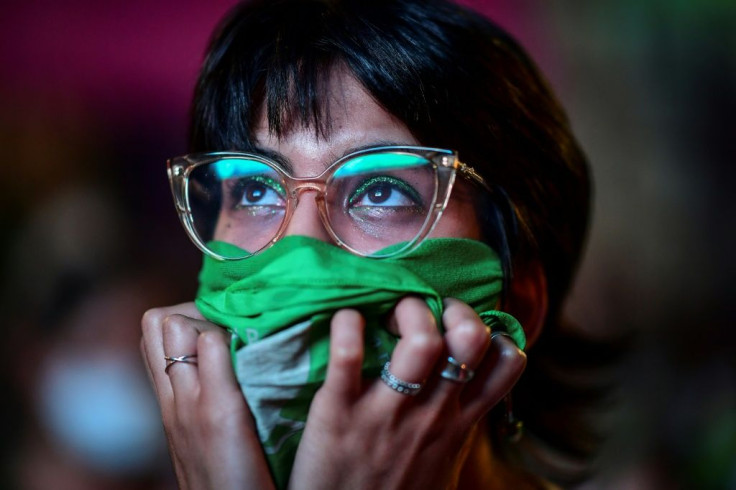
"Safe, legal and free abortion is law ... Now we're a better society that is increasing women's rights and safeguarding public health," President Alberto Fernandez, who sponsored the original bill, wrote on Twitter.
Hundreds of thousands of illegal terminations are carried out every year in Argentina with at least 3,000 women dying after backstreet abortions since the 1980s, said Fernandez, who is Catholic.
Before the vote he said the law was necessary "to legislate for everyone."
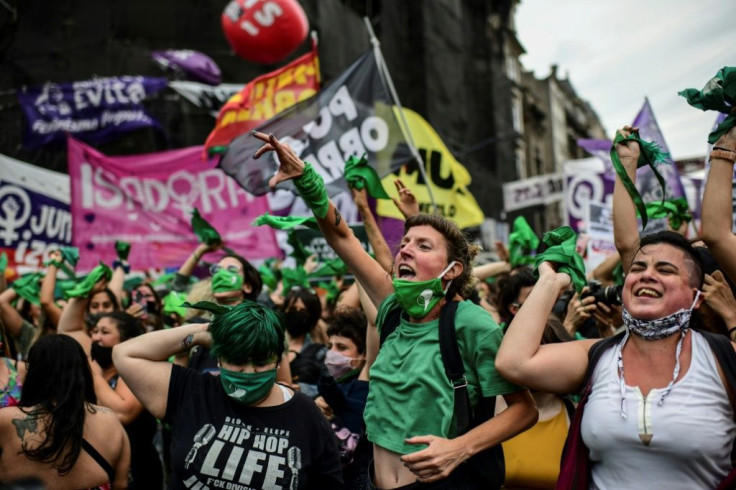
"After so many attempts and years of struggle that cost us blood and lives, today we finally made history," protester Sandra Lujan, a 41-year-old psychologist, said after the vote in the pre-dawn hours of Wednesday.
"Today we leave a better place for our sons and daughters."
The bill in the country of 44 million succeeded despite strong opposition from Evangelical Christians and traditional Roman Catholics -- with Pope Francis tweeting his tacit disapproval of change ahead of the vote.
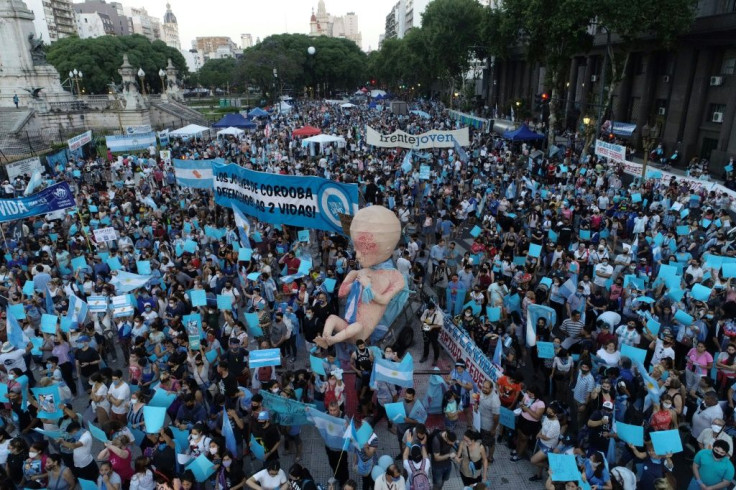
Human Rights Watch Americas Director Jose Miguel Vivanco hailed the decision as historic, and hoped it would energize other governments in the region to follow in the footsteps of one of Latin America's largest nations.
"The criminalization of abortion has failed. It's time to end it," he tweeted.
However the far-right leader of neighboring Brazil, Jair Bolsonaro, quickly signalled his disapproval.
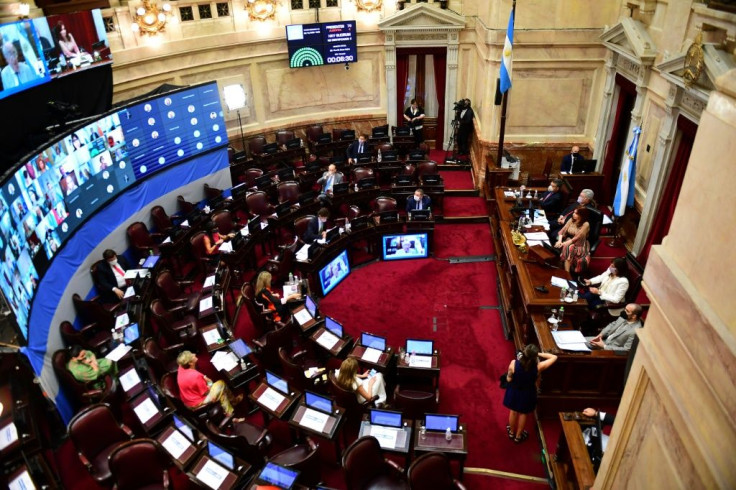
"I deeply regret the lives of Argentine children, now exposed to being cut from the wombs of their mothers with the consent of the state," tweeted the head of the world's biggest Catholic country, where abortion remains illegal.
The new Argentine legislation will allow voluntary terminations up to 14 weeks of pregnancy, and was approved 38 to 29 with one abstention.
The vote overturns a similar one in 2018 which -- although also passed the lower house -- ultimately foundered in the Senate by 38 votes to 31.
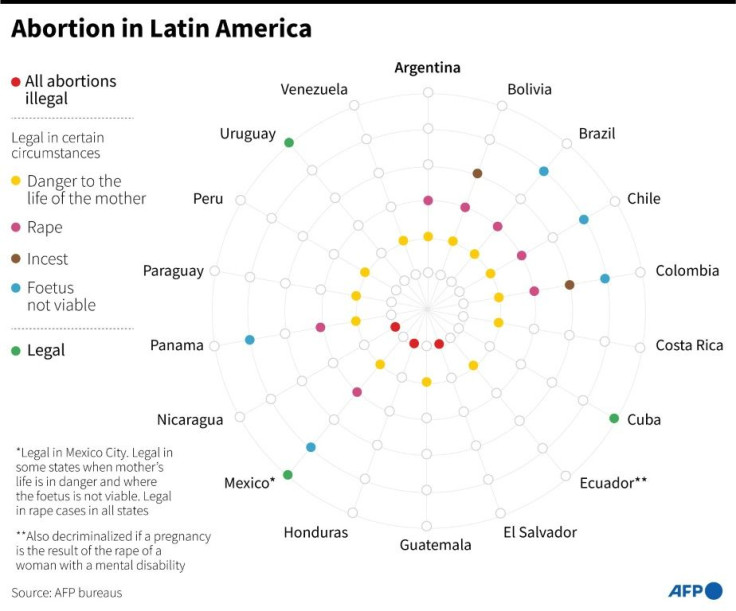
Only Uruguay, Cuba and Guyana allow voluntary terminations in South America, which has some of the most restrictive abortion laws in the world.
In El Salvador, Honduras and Nicaragua, it is banned, and women can be sentenced to jail even for having a miscarriage.
In Argentina, terminations were previously allowed in only two instances: rape, and danger to the mother's life.
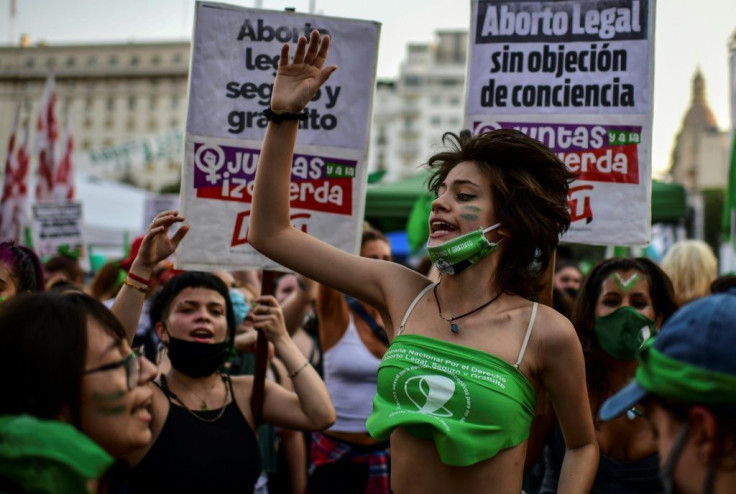
The bill passed the Chamber of Deputies on December 11.
Francis, who is Argentine, has not commented directly on the vote but many felt he indirectly addressed the issue in a speech on Wednesday morning.
"Christians, as all believers, bless God for the gift of life. To live is above all to have received," he said in his last speech before the New Year.
"All of us are born because someone wanted us to have life."
More than 60 percent of Argentines call themselves Catholic, according to a 2019 survey by the National Council for Scientific and Technical Research (Conicet).
Another Conicet survey this year found more than half of Argentina's Catholics supported abortion only in limited circumstances -- with around 22 percent supporting it, and roughly 17 percent rejecting it in all cases.
"The interruption of a pregnancy is a tragedy. It abruptly ends another developing life," said Ines Blas, a senator from the ruling coalition.
However, Senator Silvina Garcia Larraburu, from the same coalition, had said she would vote for the bill this time despite being against it in 2018.
Despite measures to prevent the spread of the coronavirus pandemic, thousands of pro-choice and anti-abortion demonstrators had gathered outside parliament ahead of the vote, following the debate on giant screens.
Pro-choice activists have campaigned for years to change the abortion laws that date from 1921, adopting a green scarf as their symbol.
The alliance of evangelical churches issued a statement calling it "a sad day."
"Today Argentina regressed centuries in terms of civilization and respect for the supreme right to life," said the alliance.
Social law changes have always been slow in Argentina: divorce was legalized only in 1987, sex education introduced in 2006, gay marriage approved in 2010 and a gender identity law passed in 2012.
© Copyright AFP 2024. All rights reserved.





















